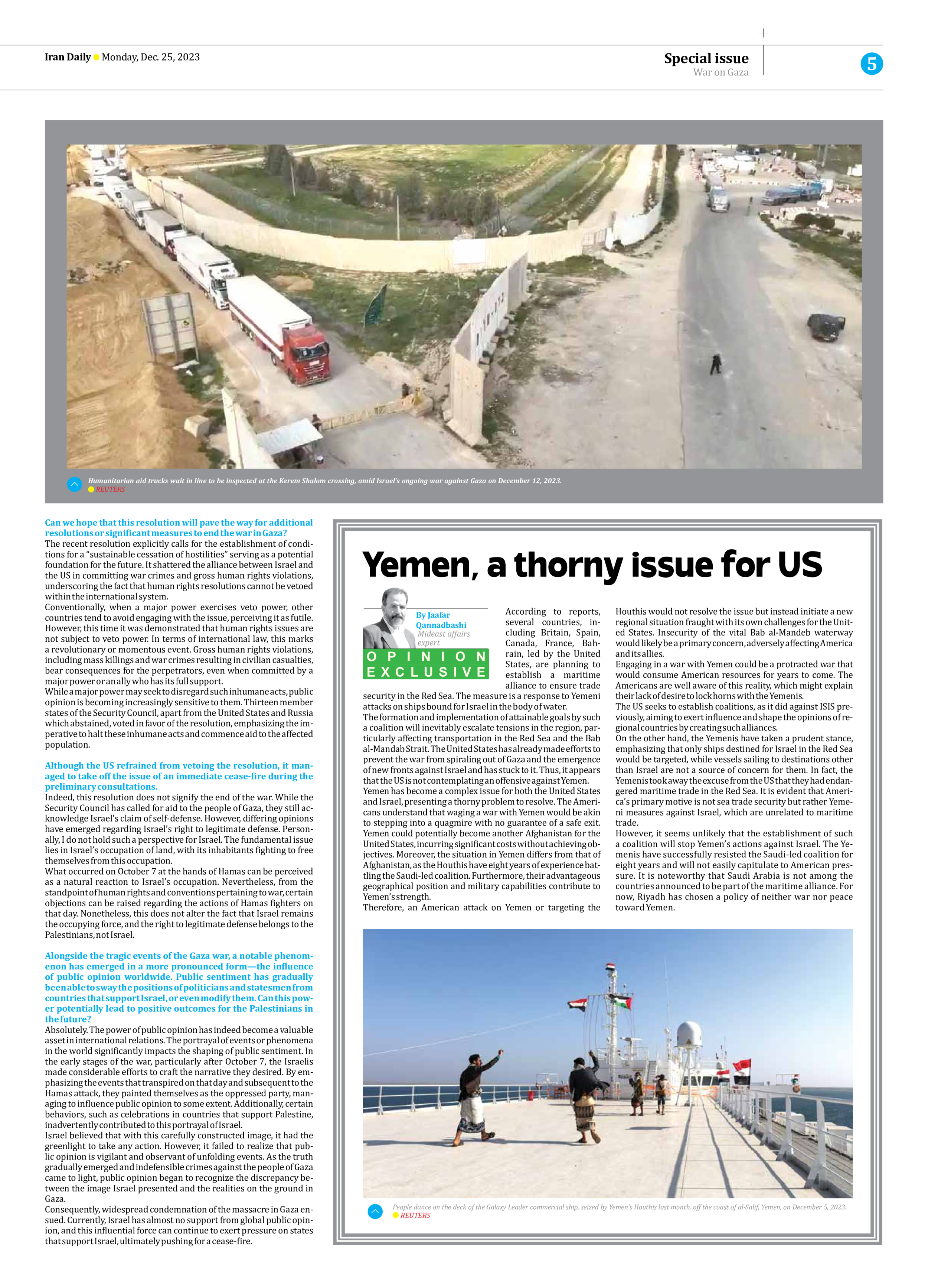
Yemen, a thorny issue for US
By Jaafar Qannadbashi
Mideast affairs expert
According to reports, several countries, including Britain, Spain, Canada, France, Bahrain, led by the United States, are planning to establish a maritime alliance to ensure trade security in the Red Sea. The measure is a response to Yemeni attacks on ships bound for Israel in the body of water.
The formation and implementation of attainable goals by such a coalition will inevitably escalate tensions in the region, particularly affecting transportation in the Red Sea and the Bab al-Mandab Strait. The United States has already made efforts to prevent the war from spiraling out of Gaza and the emergence of new fronts against Israel and has stuck to it. Thus, it appears that the US is not contemplating an offensive against Yemen.
Yemen has become a complex issue for both the United States and Israel, presenting a thorny problem to resolve. The Americans understand that waging a war with Yemen would be akin to stepping into a quagmire with no guarantee of a safe exit. Yemen could potentially become another Afghanistan for the United States, incurring significant costs without achieving objectives. Moreover, the situation in Yemen differs from that of Afghanistan, as the Houthis have eight years of experience battling the Saudi-led coalition. Furthermore, their advantageous geographical position and military capabilities contribute to Yemen’s strength.
Therefore, an American attack on Yemen or targeting the Houthis would not resolve the issue but instead initiate a new regional situation fraught with its own challenges for the United States. Insecurity of the vital Bab al-Mandeb waterway would likely be a primary concern, adversely affecting America and its allies.
Engaging in a war with Yemen could be a protracted war that would consume American resources for years to come. The Americans are well aware of this reality, which might explain their lack of desire to lock horns with the Yemenis.
The US seeks to establish coalitions, as it did against ISIS previously, aiming to exert influence and shape the opinions of regional countries by creating such alliances.
On the other hand, the Yemenis have taken a prudent stance, emphasizing that only ships destined for Israel in the Red Sea would be targeted, while vessels sailing to destinations other than Israel are not a source of concern for them. In fact, the Yemenis took away the excuse from the US that they had endangered maritime trade in the Red Sea. It is evident that America’s primary motive is not sea trade security but rather Yemeni measures against Israel, which are unrelated to maritime trade.
However, it seems unlikely that the establishment of such a coalition will stop Yemen’s actions against Israel. The Yemenis have successfully resisted the Saudi-led coalition for eight years and will not easily capitulate to American pressure. It is noteworthy that Saudi Arabia is not among the countries announced to be part of the maritime alliance. For now, Riyadh has chosen a policy of neither war nor peace toward Yemen.







